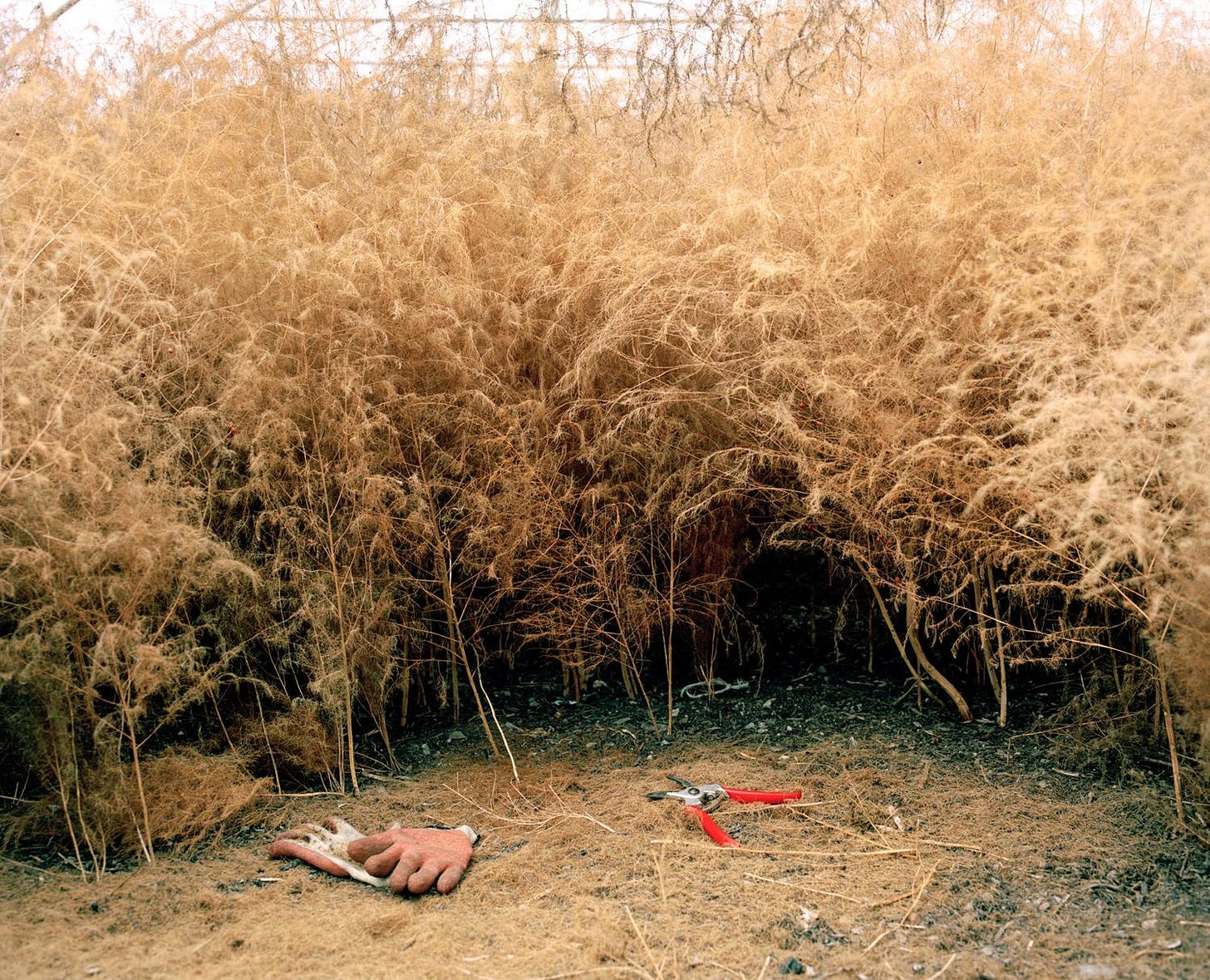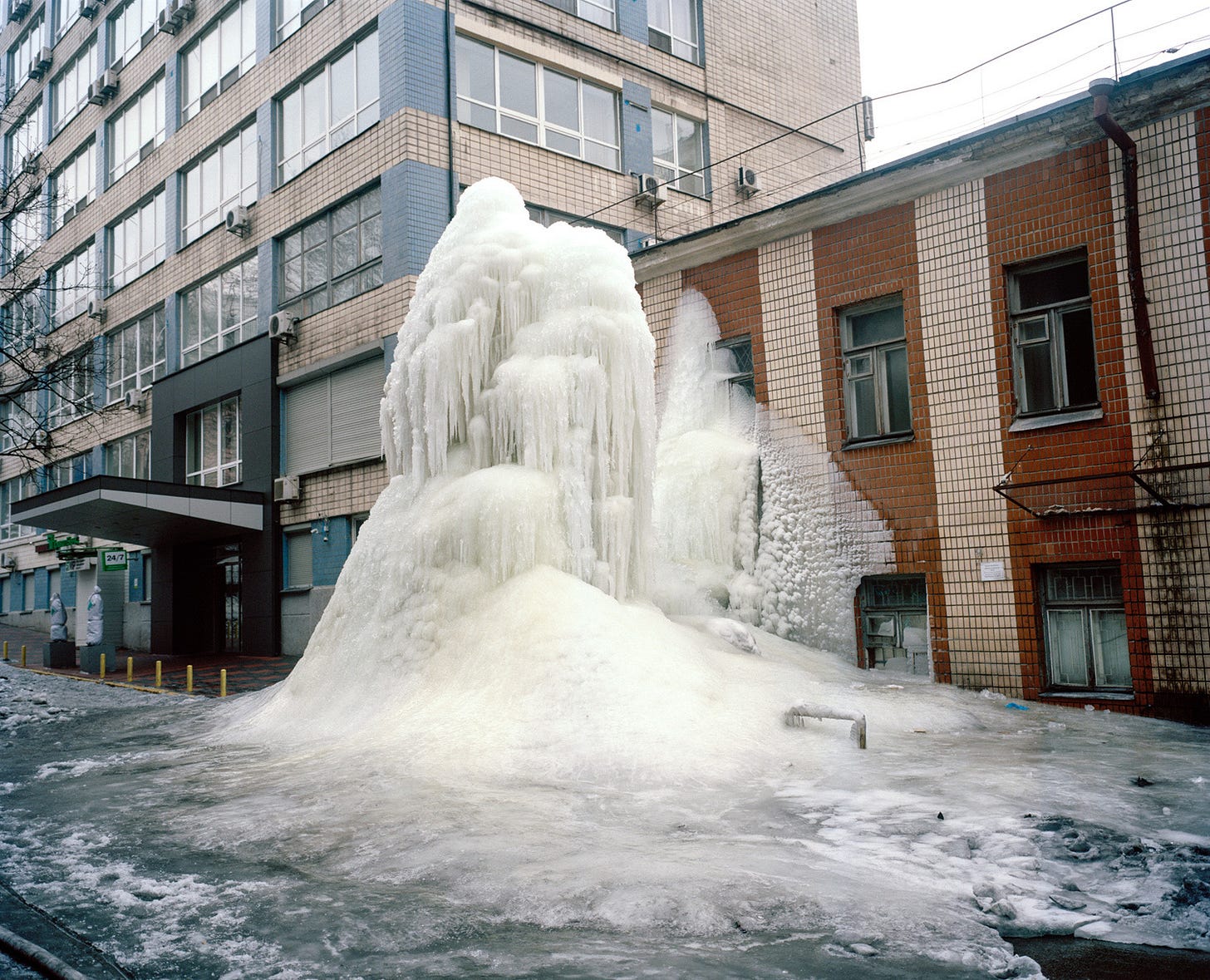No.162
I have written this newsletter backwards, which is to say that I started at the end and am now at the beginning, and I might even pause in the middle of this beginning to make a tea. What I was going to do was write a letter to October, asking it to stay a little warmer than it might otherwise, asking it to not let all the leaves go before I have time to look at them in their oranges and reds and other fire-colours. Instead I will just mention an unremarkable incident that provided me with sense of a summer ending, of autumn beginning:
The other day, walking into the village with something to post to an uncle, I approach a group of four women, perhaps in their sixties and seventies, wearing sunglasses and sandals and light-coloured clothing and taking turns sitting on the uncomfortable wall beside the touchable, glittery sea in order to take photographs. They strike me as unapologetic in their holidaying, because it is almost October and because I am wearing a coat. The sun is out, but there is hardly any warmth in it.
As I approach them I wonder whether the animated, lone camerawoman now taking a photo of the other three will notice me coming, or move slightly to let me pass, but I decide she probably will not, and that I wish not to interrupt their rite of ocean-side passage. I glance behind me to ensure I will not be run down by an oil tanker, and then step out into the road to give the photographic proceedings a wide berth. But I am noticed and ensnared: all four ladies seem to grow their necks by six inches and request that I might take their photo, all together, although it is not the done thing and would you mind and it’s been four years since we were last on holiday together.
I cannot locate the words to refuse, so I say ‘smile!’ and take two photographs on the woman’s phone, not able to see their eyes behind the darkness of their sunglasses, and figuring that in four more years they might look at the photo, puzzled, trying to remember who on earth could have taken the image.
WORK-RELATED NEWS:
When faced with a project of reasonable size—say, a book of approximately 208 pages—it is not actually possible to begin before you have begun. What I mean by this is that it can be difficult to imagine yourself forwards in time, difficult to extrapolate yourself further down time-lines towards something akin to an ending. You need to be able to imagine yourself working on the same pages that you’re working on now in a month, or in two months, or, if you have the strange luxury of years, working on those pages for years.
This is partly, perhaps almost wholly difficult to do because of the inherent nature of everything. Speaking to a friend on the phone two days ago, she remarked on how strange it is that we don’t more often go about our days in a sort of blank shock at how improbable and uncertain it all is. In the nicest possible way, we don’t have a clue. We tend to assume, faintly, that we are more or less in control of the shape of our days, that we will be able to foresee things, and that we will always have a varying quantity of confidence with which to face the things that we don’t see coming. We don’t remember that we might as well be trying to grip on to sun-dry sand.
The fact is that if you are moving around with your senses open, you could turn left rather than right and undo everything you have worked towards, or you could trip on the pavement and be helped up by someone you will then get to know over the course of forever—you could meet with any vast number of fates, good or terrible or mundane, which I suppose is something that a lot of people loudly refer to as living but then promptly forget about.
As I work somewhat feverishly on the illustrated pages for Everything, Beautiful, my next book, I find myself more at ease with time. Now that I have begun, I cannot un-begin, and so I move at a near-constant pace with near-constant working hours towards a fixed point, like a timetabled train. At various points throughout the day I remember that I want to make tea, or coffee, and I stand up once every so often to wash out brushes or to get clean water or to try and soak bright paint out of a sleeve.
It is a good existence, for now, one in which I can forget to a slightly larger degree the anxiousness of everything, the noise of it all, the persistent shrill of internet and the slightly cramped feeling that autumn can bring with it if you’re not keeping a close eye on the trees.
THIS WEEK I FELL IN LOVE WITH:
Work by British photographer Marco Kesseler.
“For me, it is necessary to look at Perugino, in order to digest the supermarkets and shopping malls, the litter and landfill sites, the pylons and traffic jams and motorway service stations that otherwise fill the eye. Without beauty, the human sensibility becomes discouraged.
…
But I, too, have a qualm about the Fra Angelicos, the Peruginos. It is that they belong to the past. Their reality is so remote from our own: I fear that to look at them is a form of nostalgia. I fear the feeling of sadness they cause me, sadness that our own world is not more beautiful. I wonder whether the others feel that too, queuing down the streets in their thousands, thronging at the ropes of museums.”
Rachel Cusk, The Last Supper
(Concisely putting how it feels to look at paintings of worlds that were perhaps more physically beautiful than our own—I found myself with a similar feeling wandering around in Dublin’s National Gallery the other week.)
The end.















